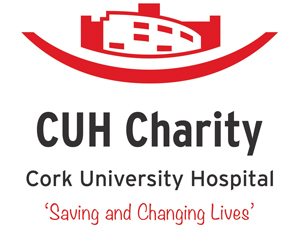The ‘Strike Against Stroke’ campaign which saw 400 Apple employees run, walk or cycle for up to 30 minutes per day for 30 days during the month of June raised over €100,000 for our Stroke Unit Appeal. This incredible support by Apple and its employees is hugely appreciated. Funds raised will go towards our appeal for the fitting out and equipping of the gym and rehab area of a new dedicated Stroke Unit at the hospital.
Stroke is the second biggest killer worldwide, the third biggest killer in Ireland and is the leading cause of adult acquired disability. Due to an ageing population, the number of stroke patients in Ireland will increase by 25% in just the next 5 years. The new dedicated Stroke Unit will incorporate a new therapy suite to provide better and quicker impatient rehab for stroke patients. Stroke unit care remains the cornerstone of good stroke care. Getting to a stroke unit after your stroke reduces mortality and morbidity. Stroke unit care increases your chance of returning to independence by 20% versus standard care on a medical ward. About 15% of CUH acute stroke patients die and the new unit will improve access to single rooms to enable people to die with dignity. This will also enable stroke services to fulfill key criteria in order to obtain European Stroke Service Accreditation.
Please support the Stroke Unit Appeal by making a donation today. and help us provide the best care possible to our stroke patients.
Apple also showed their support for Cork University Hospital during the Covid-19 outbreak by partnering with Dr Des Murphy, Consultant Respiratory Physician, who led the design of a mobile app to educate doctors assessing and treating Covid patients. This interactive app allowed the doctor to input the initial vital signs of their patient to determine the categorisation of severity. The app then advised what treatment to consider for the given patient’s severity. Apple kindly donated a number of iPads to Cork University Hospital. This allowed the Triage app to be rolled out. As the pandemic came more under control, the hospital deployed iPads to other wards in the hospital. They facilitated patient and family communications. This also facilitated dialogue between clinicians and the family of patients.







